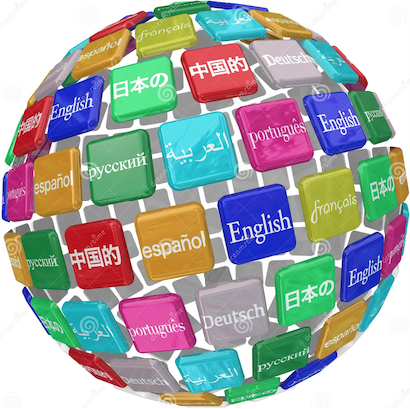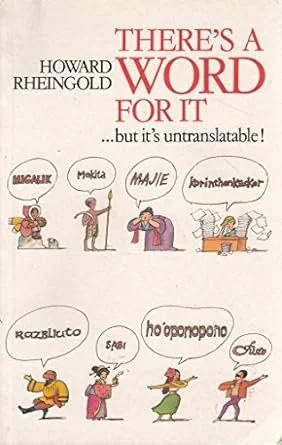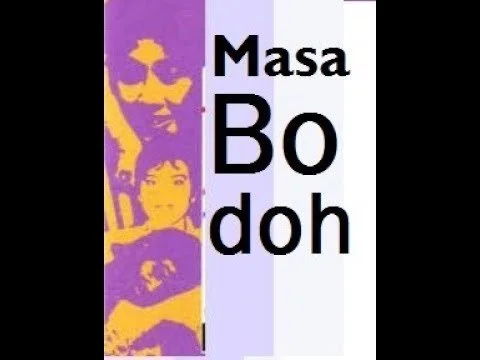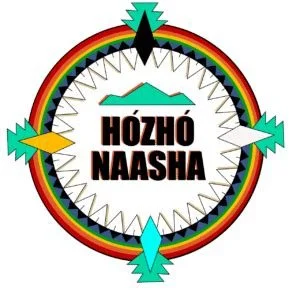WELTSCHMERZ AND THE WORLD'S WISDOM
The difference between the almost right word and the right word is the difference between the lightning bug and the lightning. — Mark Twain
In these meshugah days of Weltschmerz and doom scrolling, it’s easy to lose your zanshin. You don’t have to be a nebbish to see Armageddon in the making. It’s in the Zeitgeist, mon ami.
But if you’re feeling especially verklempt (Yiddish for “overcome with emotion”), the world itself may not be the only culprit. Much of the blame can be laid on our amped up, enraged, and over-the-top language. George Orwell, in Politics and the English Language, defined the problem:
“A man may take to drink because he feels himself to be a failure, and then fail all the more completely because he drinks. It is rather the same thing that is happening to the English language. It becomes ugly and inaccurate because our thoughts are foolish, but the slovenliness of our language makes it easier for us to have foolish thoughts.”
AI and CRT. DEI and DEIB. Techquity. Gaslighting. Growth Mindset. . . I say “basta!”
Luckily, English is not the only tongue in town. Turns out that the world’s languages can provide an antidote to your ambient ennui. Hope, life, and even tikkun olam (Hebrew for “healing the world”) can come from words of wisdom not found in Webster’s. We all know that Eskimaux cultures have several words for snow, but did you know. . .
In They Have a Word for it, journalist Howard Rheingold compiled dozens of terms from around the globe that have no equivalent in English. To wit:
— dohada (Sanskrit) the unusual appetites of pregnant women;
— conmoción (Spanish) a strong emotion shared by a crowd;
— razbliuto (Russian) the feeling you have for a person you used to love.
Linguists say that English has more words than any other language. Yet we can still learn a thing or two from the world’s tongues. Feeling “Bettschwere?” (German for “state of consciousness too ponderous for anything but sleep?”) Let the planet’s cornucopia of languages restore your esprit de corps.
In Thailand, despair and depression demand a little sabsung — “to slake an emotional thirst and be revitalized.” Easy to say, perhaps, but because America gave the world “the blues,” curing them might require more than mere sabsung. It might require za (Chinese — “to understand things and thus take them lightly.”)
These days, unless you’re a master of Schadenfreude (German for taking glee in others’ misfortunes), it should be clear that the world is, by and large, farpotshket — (Yiddish — “all fouled up due to attempts to fix it.”) That’s why a mensch like you can’t help, at times, feeling “like a crocodile in a wallet factory.” (Spanish — “nervous.”) But linguists tell us that, despite the disappearance of dozens of languages, some 7,000 remain. Surely a few must speak to today’s omnipresent suckiness (American for — well, you know).
The French may want to be engagé, but elsewhere a little Zwischenraum (German — “distance between things”) can work wonders. When you turn away from the world, friends may say you’re “hiding your head in the sand.” Yet Italians know the benefits of qualunquismo (literally “whatever-ism.”) So step back, chill, zone out, and if possible, try being masa bodoh (Javanese — “sociopolitically passive and unaware.”)
Rest assured that when you’re ready to return to la vie quotidienne, all its snafus will be waiting. To face them, however, you’ll need to be something of a contestaire (French — someone who challenges the established order). You’ll also need plenty of Zivilcourage (German — the courage to express unpopular opinions.)
And in a world that is “too much with us now,” where everyone feels compelled to share every last headline, you might also need a soupçon of mokita (New Guinea — “the truth everyone knows but no one speaks.”)
Once you’ve regained your mojo, you’ll probably see that your Weltschmerz (above) is a natural human condition. Far beyond the Zeitgeist (German — “the mood of an age”) life itself can induce the blues in endless variety. Again, other cultures and their words of wisdom can help.
You say you’re getting older? That happens in Japan, too, but the Japanese fight back with shibui. Shibui defines “the beauty of aging, a beauty that only time can reveal.” Shibui helps you notice how certain flavors, certain wisdom, certain faces become more sublime with age. That subtle truth makes shibui, also the name of an aged whiskey, an essential ingredient in every Weltanschauung (German — “worldview.”)
Still, even with shibui, za, sabsung, and mokita on your side, your embattled Weltan— whatever could also use a dash of Hózhó. Who knows how to pronounce it, but the Navajo define Hózhó as “expressing the beauty of life, especially a personal beauty perceived on a daily basis.” Navajo live with Hózhó all around them. The concept resembles bliss but is a little more like the Chinese tao.
“There is something undifferentiated and yet complete,” proclaims the Tao Te Ching. “It depends on nothing and does not change. It operates everywhere and is free from danger. It may be considered the Mother of the universe. I do not know its name; I call it tao.”
Feeling better? We, the people of the world, thought you might be. Wisdom from the world’s languages, expressing the infinite variety of human thought and emotion, have helped you get your groove back. Welcome to zanshin (Japanese — “state of relaxed mental alertness in the face of danger.”) Hooray for hart ducha (Polish — “self-mastery in the face of internal and external forces.”) And of course, three cheers for cuor contento (Italian — “how a happy, eventempered person feels.”)
Now back to your regularly scheduled dharma (Sanskrit — “each person’s unique path in life.”)










